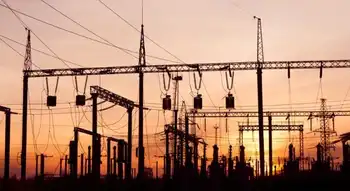UK nuclear power back on the table
By Reuters
NFPA 70e Training - Arc Flash
Our customized live online or in‑person group training can be delivered to your staff at your location.

- Live Online
- 6 hours Instructor-led
- Group Training Available
Anti-nuclear Liberal Democrats, a minority in the coalition government with the Conservatives, will speak out against nuclear power but has agreed to abstain from voting on national planning statements NPS on new plants.
This leaves the NPS vote to mostly Conservative and Labour parliament members, whose parties both support the building of new nuclear power plants.
"In principle, if you have a large number of Conservatives supporting the NPS and a large number of Labour supporting, then it should go through," Omar Abbosh, UK Resource managing director of consultant Accenture said.
"So a large chunk of uncertainty over what a coalition government would have done has been removed, and probably a large number of people in the UK sector feel good about."
And the appointment of Lib Dem Chris Huhne as the energy minister is not expected to disrupt the NPS process, despite his anti-nuclear stance conflicting with the Conservative's position of encouraging new nuclear build.
"The agreement states that the Lib Dems are allowed to oppose the NPS in the debate but abstain when it comes to the vote, which I assume applies to the minister too," Abbosh added.
But the Lib Dems could use other methods to block or delay new nuclear plants.
"The main impact on new nuclear development of a Lib Dem heading DECC Department of Energy and Climate Change is likely to be more subtle than outright opposition, with delays caused by less desire to promote new nuclear and remove obstacles," Evolution Securities analyst Lakis Athanasiou said.
He said examples included possible power generation capacity payments for new coal and gas plants, which might have also included new nuclear. But an anti-nuclear energy minister would be unlikely to push for any money for new nuclear plants.
"Also the abolishment of the Infrastructure Planning Commission IPC is likely to lead to substantial planning permission delays without a supportive Secretary of State at DECC," Athanasiou said.
The Conservative and Lib Dems both want to abolish the IPC — an unelected body set up by Labour to approve large infrastructure projects — replacing it with a government minister giving final approval.
The coalition agreement to set a minimum price for emitting climate-warming carbon gases is also expected to encourage investment in nuclear power plants, as reactors produce hardly any carbon compared with burning coal or gas, said analysts.
"Many of the proposals made, such as establishing a carbon price floor, will resonate favorably with the investing groups," Tony Ward, partner at Ernst and Young's utility team, said.
And utilities intending to build new nuclear power plants have welcomed the coalition NPS and carbon price agreement.
"In particular, we're pleased they recognize the importance of new nuclear... and they are proposing a mechanism to underpin its development through a higher carbon price," Centrica Finance Director Nick Luff said.
French utility EDF also said that the Conservative's stance of no public subsidy for new nuclear plants would not stop them being built.
"We believe nuclear power is the most affordable low carbon option and can be built in the UK without subsidy," Chief Executive Vincent de Rivaz said.
Centrica has a 20 percent stake in British Energy — owned by EDF — which is aiming to build four nuclear reactors, while Germany utilities E.ON and RWE also plan to build new nuclear plants.
Many of Britain's aging nuclear power plants are scheduled to shut over the next few years, with the Conservatives pushing private companies to build new ones as part of a low carbon power generation mix.











